Purple Press Developer Dispatch 04

Welcome back to the Purple Press Newsletter, your builder-focused digest. With every dispatch, we deliver dev stories and community chatter, followed by a quick fire of deep dives, project updates, and ecosystem highlights to catch you up on everything you need to know.
Onward —
🌈 Polygon zkEVM and “Stage 1” maturity
What the hoopla and why should you care?
On New Year’s Eve, @balajis posed a question, while seemingly innocuous, it triggered a wave of responses that pointed to the incredible resilience and optimism of the Web3 community. AI had seduced the collective imagination of VCs and builders alike; so it was hardly surprising that the optimism for LLMs stayed strong. But, crypto had been dealt blow after blow of bad actors and financial pitfalls, in a market that was already weathering the storms of a bear. Yet, his innocuous question, “What are you bullish on for 2023?” drew in responses from across the ecosystem from DAOs becoming more mainstream to signing with Ethereum to stablecoins.
One response however stood out from the rest in its specificity, and how soon the vision was to become a reality.
The “Stage 1” in question was part of a schema proposed by Vitalik to explain the trustlessness and maturity of rollups.
There are currently a large number of (optimistic and ZK) rollup projects, at various stages of development. One pattern that is common to almost all of them is the use of temporary training wheels. In Web3, community is precedent even with a protocol-first mindset — hence, while a project’s tech is still immature, the project launches early to allow the ecosystem to start forming. So, for rollup projects, instead of relying fully on its fraud proofs or ZK proofs, some “training wheels” are implemented that can force a particular outcome before the tech matures fully to override bugs in the code.
Based on how heavily the tech relies on training wheels, Vitalik proposed three different stages of rollups, with each zkEVM moving progressively to higher stages and increasing levels of trustlessness and independence from centralized actors.
TL;DR:
- Stage 0, also known as "full training wheels," requires that the project call itself a rollup, that all rollup transactions go on-chain, and that there exists a "rollup full node" that can read the L1 chain, extract, and compute the current state of the rollup chain.
- Stage 1, also known as "limited training wheels," requires the existence of a running fraud-proof or validity proof scheme that has the practical authority to accept or reject which state roots get accepted by the rollup contract.
- Finally, Stage 2, also known as "no training wheels," requires that in the event that code does not have bugs, there must not be any group of actors that can, even unanimously, post a state root other than the output of the code.
Polygon zkEVM has reached “Stage 1”, but there is still some ways to go to reach the next and final stage of trustlessness. A rundown of the security measures taken and those coming ahead can be a good primer for anyone on this journey.
Speaking of Polygon zkEVM, there is a cool new toy on the block, called Polygon Copilot, where you can drop all those unanswered queries you have on Polygon zkEVM.
Let’s unpack this a bit — so, instead of poring through long technical documentation for hours and days on end to find exactly what you want, you can now have all the info you need, at hand.
And, you can also have some fun while you’re at it ⬇️
🎡 Why ETHGlobal events are “carnivals for builders” & not just hackathons?
Memoirs of a DevRel
One of the criticisms that have been leveled at crypto is how it tends to commodify human relationships within equations of financial gain, by focusing on rewards and tokens than on forming real connections. Yet, ETH events are anything but.
From May 12 to 14, the sun-kissed city of Lisbon embraced innovation with open arms, playing host to ETHGlobal Lisbon, and the historic Convento de Beato stood as a testament to the blending of centuries-old charm and cutting-edge technology. Within these hallowed walls, over 975 attendees from 51 countries convened, forming a community that was united by ambition, creativity, and a shared love of coding.
The first days of ETHGlobal Lisbon set the stage for an immersive learning experience. Esteemed speakers, took to the stage, sharing their wisdom and insights. Workshops and talks, such as "Future of POAP and the NFT ecosystem" and "Unlocking Digital Asset Ownership," sparked thought-provoking discussions that resonated deeply within the community.


Then the hackathon commenced, and hackers dove into three days of intense coding and creation. Armed with an array of amazing local cuisine throughout the day and midnight snacks to keep going until the wee hours of the morning, developers as young as 13 years, worked tirelessly toward making their work the best in the community!
“You can copy-paste code and content, but you can’t copy-paste a community.”
Every org in the space makes an attempt to be builder-focused and be more open to new participation. As a result, a major theme that emerges as a highlight is mentorship and a culture of openness. For instance, the Polygon ID core engineering team became mentors to countless builders, answering questions and helping teams with their projects. With a total of 96 projects deployed on Polygon (the highest of any sponsor), the booth was a hub of activity and chatter.

And ETHGlobal Lisbon set a high bar on community attendance, the quality of projects, and the production itself… aspects that just show how the community can come together to create things that are truly spectacular.
If you ask a DevRel, these are really the best of circumstances for forging relationships — connections that have nothing to do with wins or losses or bounties. From impromptu conversations in bustling corridors to late-night brainstorming sessions, events like ETH Global forge connections beyond loyalties to a creed, team, or affiliations. In many ways, these are like carnivals for developers and reflect the very best ethos of Web3.
🏰 A tale of grit
Every dev has a unique story to tell. These stories, however, tend to fade into the background as their accomplishments take center stage, leaving us unaware of the journey that shaped their accomplishments.
Meet Beau, a developer extraordinaire, who faced challenges along the way, but went on to become one of the most illustrious builders in Manila. Today, Beau's advocacy for Web3 education in the Philippines serves as an inspiration to countless devs like him.
🆔 3 Deep Dives - Polygon ID Edition
Decentralized Identity Use Cases
In 1993, the New Yorker cartoon "On the Internet, nobody knows you’re a dog" highlighted THE main challenge with online identity. Today, Polygon ID tools help devs solve the problem with a self-sovereign, decentralized, and private identity infrastructure stack.
Here is a breakdown of how this tech can change how users and applications interact with online identity.
👤 Proof of KYC, without the personal data
KYC is the recourse we tend to choose for regulatory compliance and preventing bad actors. However, conventional KYC approaches often prove burdensome and time-consuming and seriously compromise user privacy.
With Polygon ID, developers can build solutions that allow users to offer proof of KYC without revealing personal data to different applications.
🪰 The UX solve we’ve been waiting for
One of the first interactions that users have with applications is at the level of authentication. Traditional methods of user authentication, such as usernames and passwords, are prone to security and privacy breaches. While Web3 authentication of signing with a wallet allows for secure and decentralized authentication of users on the web, it is often a UX pain point with users needing to worry about storing private keys, or signing every time with their wallets for different dApps and sessions.
Polygon ID can be used by devs to remove these UX woes in favor of a more private and secure alternative.
👊🏼 Preventing Sybil attacks with proof of uniqueness
Sybil attacks are a pressing concern, from social platforms to DeFi, and particularly severe when money is at stake.
To address this challenge, while numerous approaches have been explored to prove the uniqueness of users, finding a balance between security, user experience, and privacy has been difficult. Some solutions rely on social activity analysis, while others use biometrics. While biometrics offer a foolproof guarantee of uniqueness, protecting privacy can be a challenge.
This is where Polygon ID steps in.
🕔 Rule of 5s
Less than 5 steps
… That’s all it takes to exert complete control over how you distribute and find the audience for your dApps.
For context, Meroku’s dApp Store Kit is empowering Web3 projects to create their own dApp stores. The open-source, community-powered tech stack gives developers the freedom to set their own rules for distribution, curation, and governance, with complete control over branding and monetization.
The dApp Registry, the base layer of the dApp Store Kit, is a decentralized app database that lets users find new dApps and allows developers to seamlessly add theirs. It frees projects from the hard work of building and maintaining their own databases so that they can focus on the UX of their dApp stores.
These resources should help you get started right away ▶️ https://app.meroku.org/ and read more on our blog.
Explain like I’m 5
In the run-up to the v1.0 release, Polygon Supernets v0.9 launched — a significant milestone with many notable value-adds, including expanded allowlists and transaction blocklists; staking and token separation support; NFT bridge support; transaction fee management; deployment optimizations and improvements to the Genesis workflow.
The v0.9 release introduces new core contracts and consensus client primitives, bringing Polygon Supernets closer to helping users realize the vision of creating "Super networks".
But, if this is the first you’ve heard of Polygon Supernets, start here ⬇️
Reduce fees on Polygon zkEVM with just 5 strategies
Transaction fees on Polygon zkEVM cover the cost of data availability and posting proofs to Ethereum, with data availability accounting for almost 80% of the network transaction price. And in the next few weeks, Polygon zkEVM is expected to reduce fees, even without compression.
But, what are some of the ways you can optimize for transaction fees?
Check it out ⬇️
Deploy a LensAPI Oracle in just 5 minutes!
The Web3 Builders Stack just got a major upgrade. 🚨
Phat Contract, a programming model that enables off-chain computation on the Phala Network introducing HTTPs requests, omnichain compatibility, and more, allowing you to feed your Polygon smart contracts with any API data. Phat Contract has also launched a customizable LensAPI Oracle Blueprint that requires no coding, so that social platform users can easily tailor the Oracle to their needs. Phat Contract now supports all EVM-compatible chains.
The following are great resources to get started ⬇️
Website: https://phala.network/
Phat Documentation: https://wiki.phala.network/en-us/build/general/intro/
Phat Contract UI: https://phat.phala.network
Phat Bricks UI: https://bricks.phala.network/
👩🏼💻 Hack your startup growth with Foundership
You're a Web3 founder with THE million-dollar idea.
You're ready to take the world by storm, but you know that anything can happen. The Web3 space is the wild west, where anything is possible and everything is up for grabs. You could raise millions from a napkin sketch, or mint a million NFTs in a day. But, you could also lose everything just as quickly. The market could crash, you could get hacked, or you could run afoul of regulators. And that's not even to mention the challenges of product-market fit, community building, and marketing.
That's where 0xCamp-Build on Polygon comes in. This 4-month Foundership program is designed to help founders navigate the high-stakes world of Web3, build their project/MVP on Polygon, and hack their way to growth, early traction, and funding.
And for all you avid zk fans, Foundership’s got an exclusive zk focus with their mentorship sessions.
Check out the program here: https://foundershiphq.com/0xcamp-details/0xcamp-polygon
👀 3 Projects to watch out for
With novel implementations of Polygon ID tooling
WalliD
WalliD aims to provide the ultimate onboarding and data verification solution by aggregating verifiable data sources and infrastructures. The aggregator brings together OAuth providers, Blockchains, Public Key Infrastructures (PKIs), DIDs and zero-knowledge protocols. This allows them to offer a comprehensive toolkit with different suites of products that cater to the needs of WebApp, dApp developers, and users.
Website: wallid.io
Verida
The Verida Wallet is a self-custody Web3 mobile wallet that supports PolygonID's verifiable credentials construct, zkProofs and multichain interoperability. Users can manage their self-sovereign decentralized identities and encrypted personal data all secured by the Verida Network.
Website: verida.io
IDfy
IDfy builds technology solutions to help companies accurately identify people, run background checks, conduct KYC, mitigate lending risks, and onboard associates. IDfy issues credentials around Personhood, Uniqueness, KYC, KYB which can be consumed to build sybil resistance and regulatory-compliant Web3 platforms.
Website: idfy.com
And, that’s a wrap! 🎁
You were absolute OGs for sticking with us to the very end. 🙌🏼
If you loved this edition, consider sharing it with someone for whom it can create some value. 🔊
Until the next time… 🕰️
Happy Building! ⚒️🚀🌔
Subscribe to our newsletter, tune into the Polygon Labs Blog and our social channels to keep up with updates about the Polygon ecosystem.
Together, we can build an equitable future for all through the mass adoption of Web3!
Website | Twitter | Developer Twitter | Forum | Telegram | Reddit | Discord | Instagram | Facebook | LinkedIn



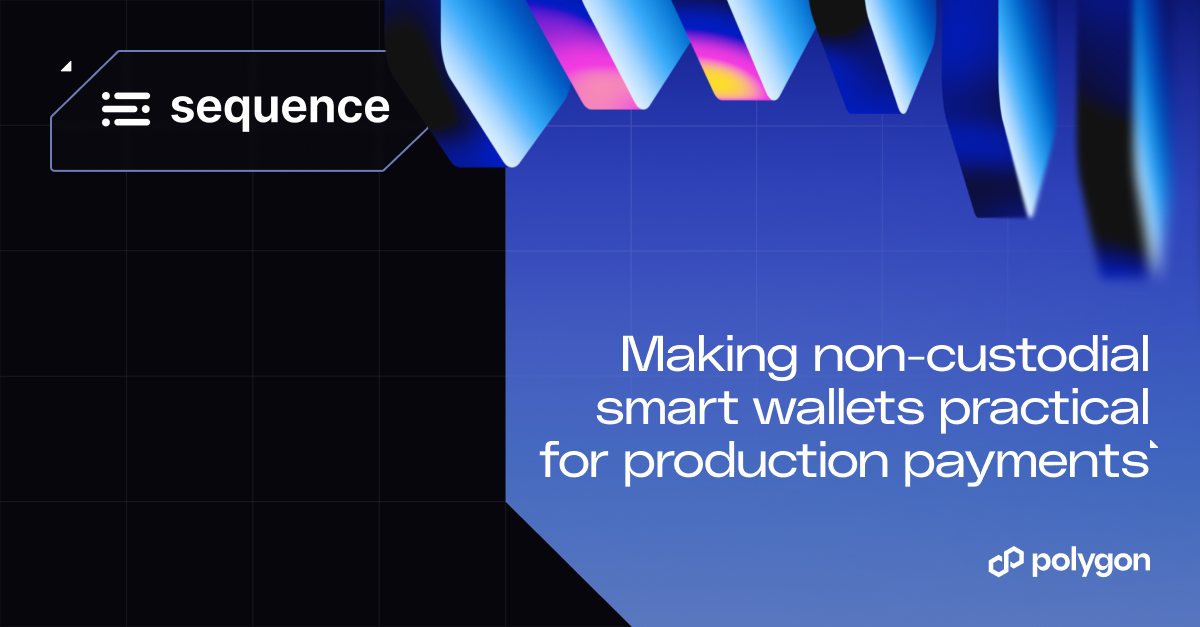


.jpg)
.jpg)
.png)

.png)

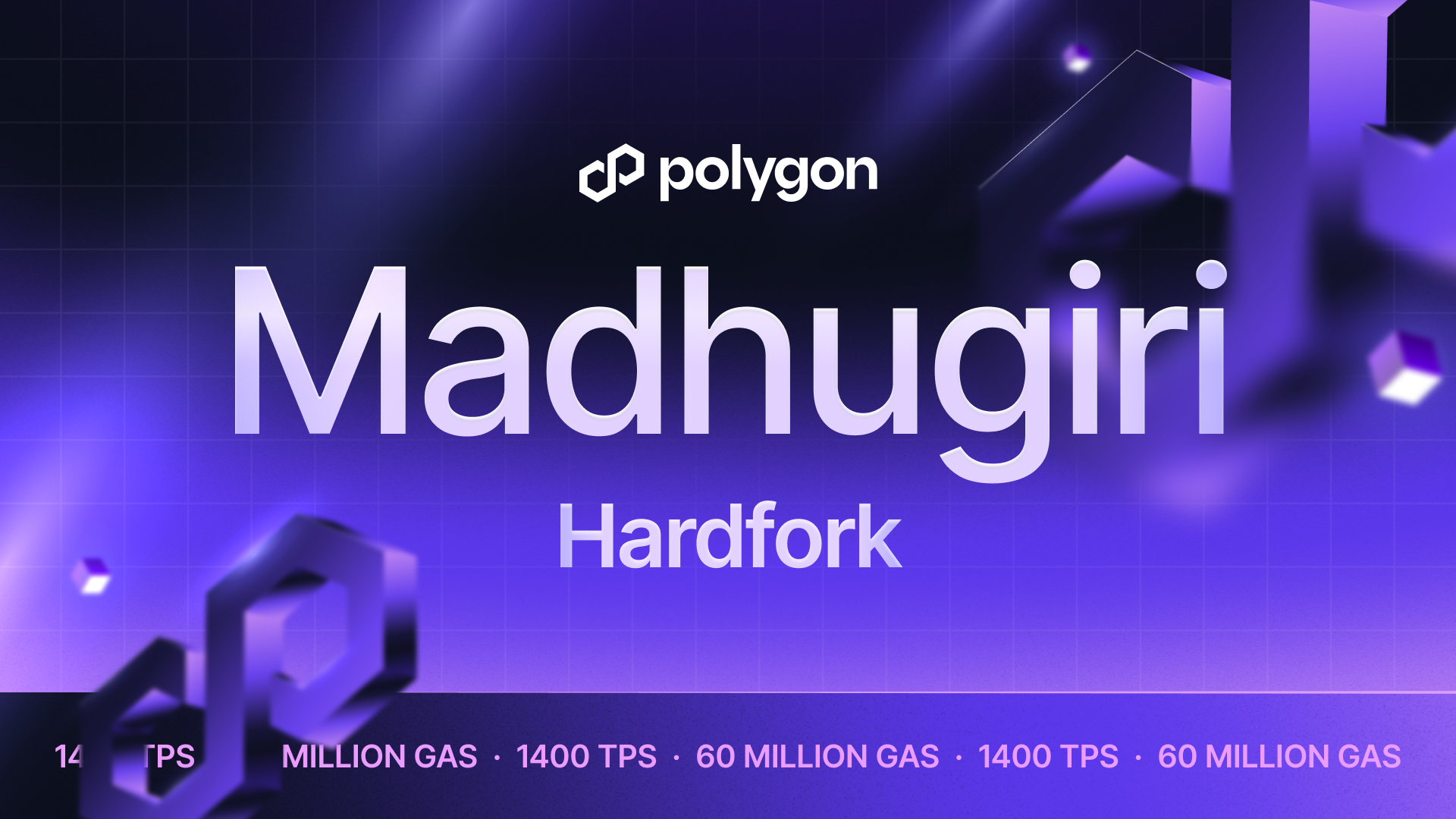
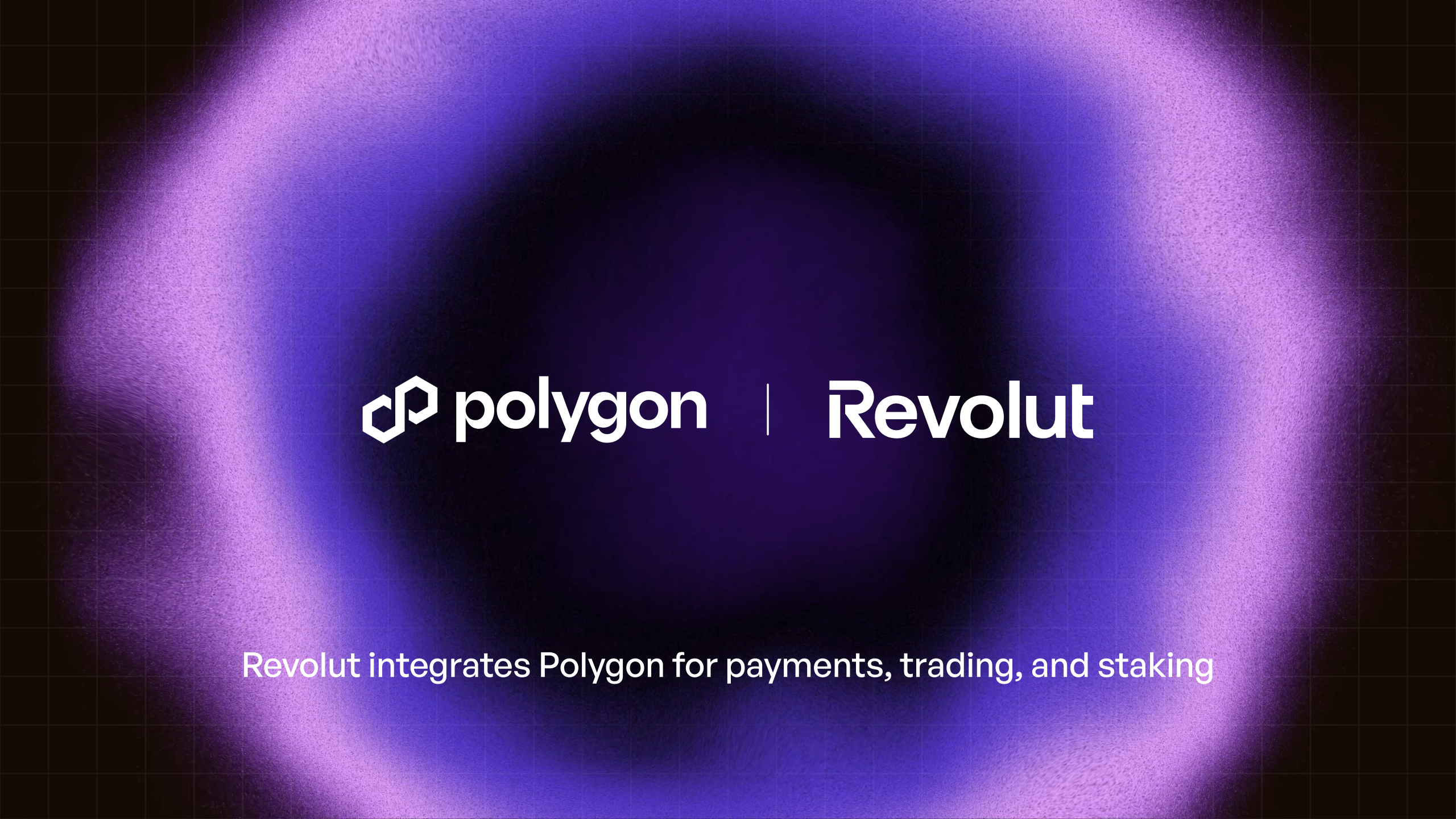
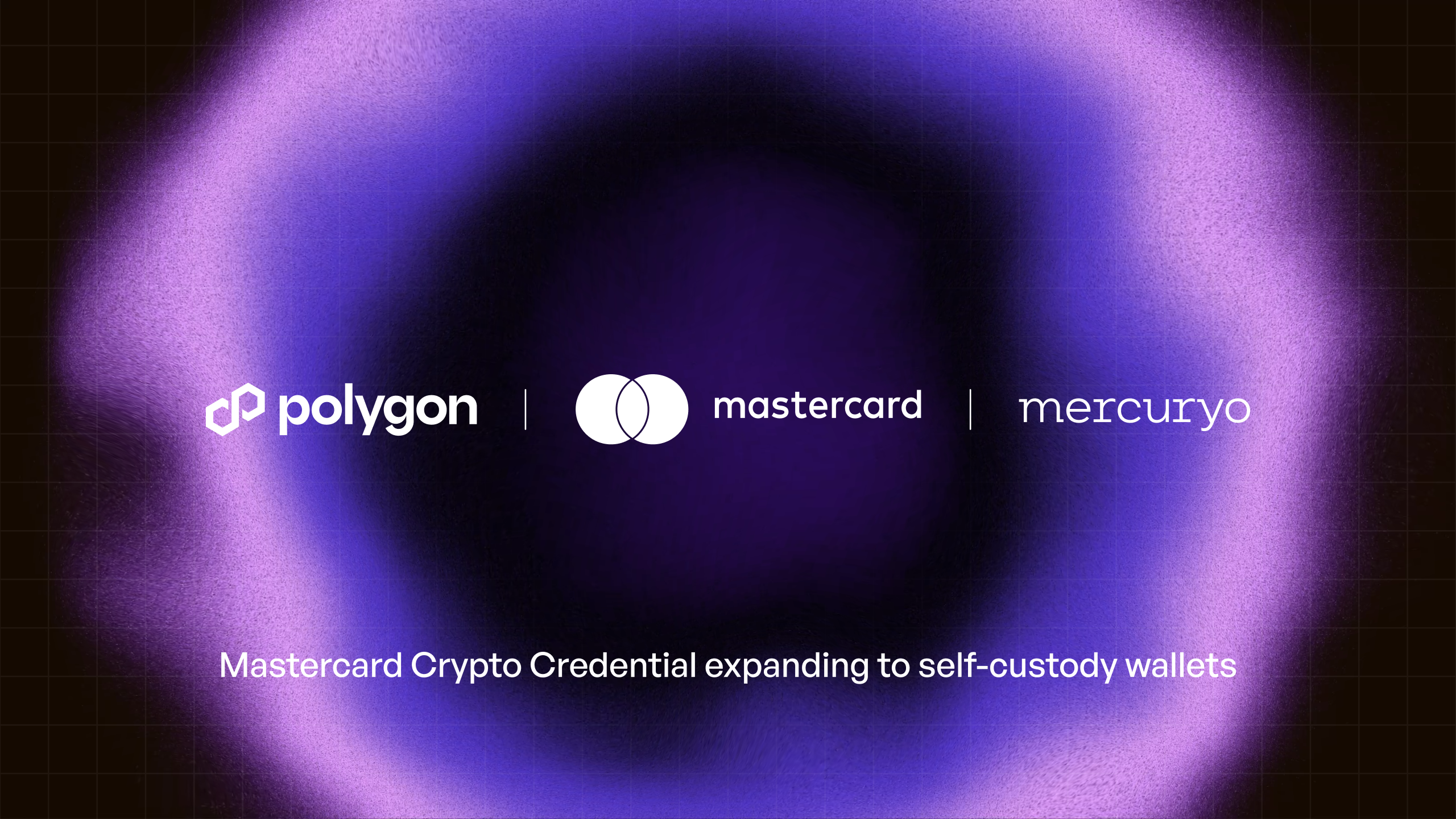

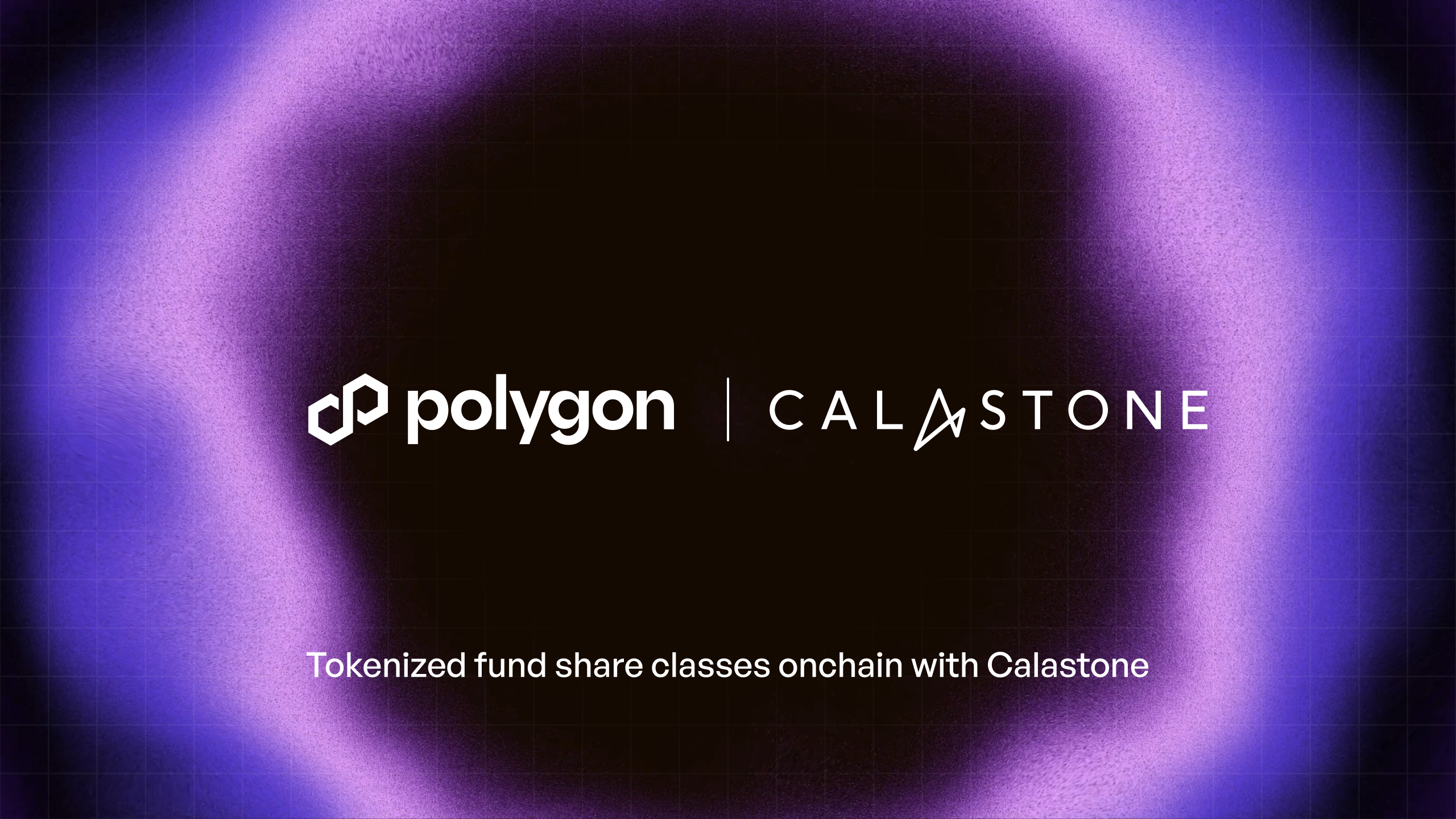
%20(1).png)